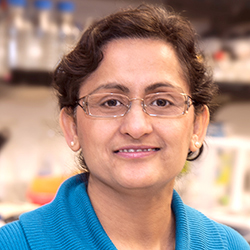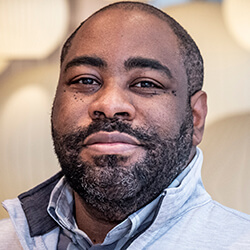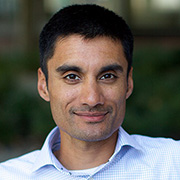-

Biobehavioral Oncology Research Program
Understanding how psychosocial factors impact outcomes for children, adolescents and young adults with cancer using integrated translational and behavioral approaches.
-
BTCCR Flex Page
Lorem ipsum dolor sit amet, consectetur adipiscing elit, sed do eiusmod tempor incididunt ut labore et dolore magna aliqua. Ut enim ad minim veniam, quis nostrud exercitation ullamco laboris nisi ut aliquip ex ea commodo consequat. Duis aute irure dolor in reprehenderit in voluptate velit esse cillum dolore eu fugiat nulla pariatur. Excepteur sint occaecat cupidatat non proident, sunt in culpa qui officia deserunt mollit anim id est laborum. -

CubDec20GenContent
This QC Lab tests all the things related to quality. -

Gustafson Lab
Led by Dr. Heather Gustafson, EDIT Labs develops novel technology platforms that target and alter macrophage phenotypes.
-

Jim Olson Lab
The Olson Lab focuses on discovering novel therapeutics for pediatric cancers and, more broadly, on discovering protein/peptide therapeutics for a wide range of pediatric diseases.
-

Kalia Lab
The Kalia Lab is enabling progress toward immunotherapies that can be applied to any type of cancer. -

Lawlor Lab
The Lawlor Lab research focuses on Ewing sarcoma, an aggressive bone and soft tissue tumor for which new cures are needed. -

Loh Lab
Our current research is focused in two main areas: (i) understanding the biology of the global pathogen Mycobacterium tuberculosis; and (ii) discovering and developing novel drugs for tuberculosis (TB) that are effective at curing drug sensitive and drug resistant tuberculosis.
-

Myron Evans II Lab
The Myron Evans II Lab is working to better understand why children get brain tumors and which mutations drive those tumors. This research includes studying how the brain normally develops in mammals, and how that process goes wrong and causes brain tumors. The lab is also working to identify new targets that could lead to potential clinical trials for children. Our ultimate goal is to make discoveries that inform a new wave of brain tumor treatments that are more targeted than today’s therapies, with fewer side effects.
-

Oda Lab
We develop engineering strategies that enable T cells to overcome obstacles in the tumor microenvironment and mount a more powerful, durable and sustained attack on cancer cells.
-

Orentas Lab
The Orentas Lab investigates how the immune system and CAR T-cell immunotherapies can be leveraged to fight childhood childhood cancers like rhabdomyosarcoma, osteosarcoma, Ewing’s sarcoma and neuroblastoma.
-

Pattwell Lab
The Pattwell Lab studies the genes and processes involved in normal neurodevelopment and how they are hijacked in the context of cancer. Better understanding of normal developmental processes can help scientists pinpoint exactly when and where certain processes go wrong in tumors. This can inform therapies that target those processes —with the ultimate goal of creating more targeted cancer treatments with fewer side effects.
-

Sarkar Lab
The Sarkar Lab is finding ways to help the immune system remember cancer and attack it if it relapses – whether that’s months or decades after a child goes into remission. -

Sarthy Lab
The Sarthy Lab uses the latest tools to understand the role epigenetics plays in pediatric cancers and to explore less toxic cancer treatments. Learn more.
-

Vitanza Lab
The Vitanza lab searches for new treatments that are both safe and curative for aggressive pediatric brain and spinal cord tumors, such as diffuse intrinsic pontine glioma (DIPG), diffuse midline glioma H3 K27M-mutant (DMG), and atypical teratoid rhabdoid tumor (ATRT).
